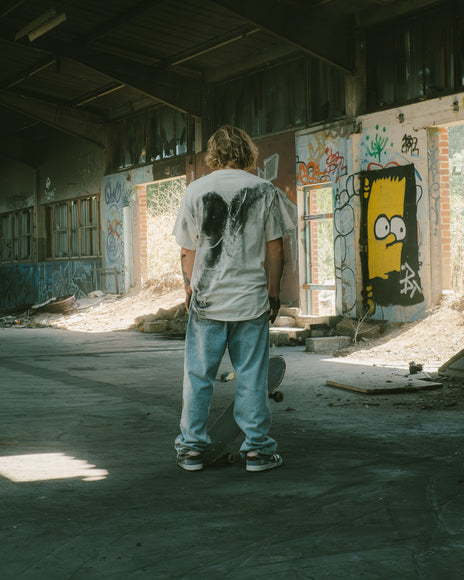In Conversation with Yallah Coffee
‘Yallah’ - Hurry up, let’s go. Born from a love of Arabic coffee with a focus on honest sourcing and creating community environments for all to enjoy, Yallah Coffee celebrates its 10 year anniversary in April 2024. Roasting single-origin, speciality coffee from their barn at Argal Home Farm just outside Falmouth, Flatspot paid a visit to learn more about their growing roastery, their sail ship importation methods and their cafes located in both St. Ives and Penryn.
A small crew with a big passion for exceptional coffee, Yallah’s strong values and lighthearted approach filter through into their growing ranges. Sharing in their love for great coffee with a focus on sustainability and traceable trade, their cafes in St. Ives and Penryn are host to many insight talks, events and feast nights, whilst their on-site roastery at Argal is home to barista training initiatives including those supported by Cornwall Rural Community Charity (CRCC). Stay up to date with the latest events and projects at Yallah Coffee here.

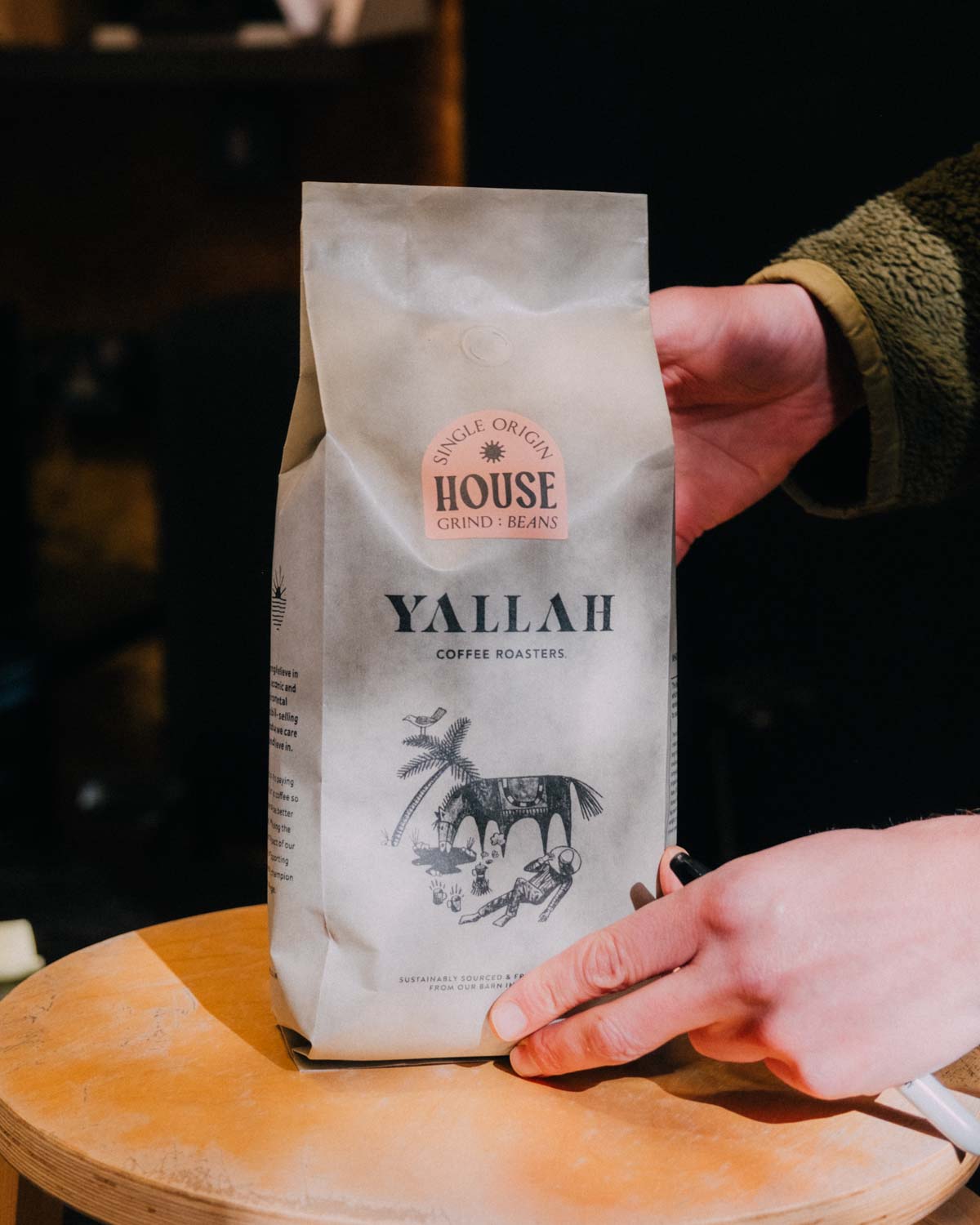
Flatspot: Hey Richard. Would you mind introducing yourself and telling us how Yallah came about?
Richard: First and foremost we’re a coffee roastery. What do we do? We wholesale to local customers and we retail; that's the main bit of the business. I guess the thing that we all love is just coffee and its origin. How it's grown, how it's traded, how it's brewed, it's just a fascinating product. The whole thing, literally from start to finish. There are so many variables and people and places that make it a never ending, wonderful product that you can't stop learning about.
Our part in that process is predominantly the roasting part. So we buy green coffee from all around the world, and we roast it and we supply it to wholesale businesses and cafes and restaurants. But we also supply directly to customers. We supply for a lot of home users, home brewers, coffee enthusiasts, that sort of thing. I guess our focus has been on single origin, single farm, micro lots, etc.
I guess the single-origin thing probably is something that we started with, and I feel like it's something we can talk about as much for the reasons behind it as for what it is. It's very, very common in the coffee world to get a blend. And obviously that can be multiple producers or multiple coffees from all around the world, all in one blend. We don't do that. Even our house coffee is still from one place. For us, that signifies the pinnacle of coffee, I suppose, if it's good enough quality to stand on its own, that's a quality thing, and the other part is that it makes it easier for customers to appreciate, I believe, where the coffees come from; to understand the story and to have value on the producer.
I feel like that one of the most difficult things with coffee is getting people to value it in the same way that we do. Traditionally it has a very low value, you know, you could go to a supermarket and get a bag of coffee for almost nothing that's been grown on the other side of the world and gone through so many hands to process it and work on it. And yet it's literally pennies per cup - and that's way under what it needs to be. So to get people to understand that it's a better quality product and has more value and in doing so can be more sustainable.
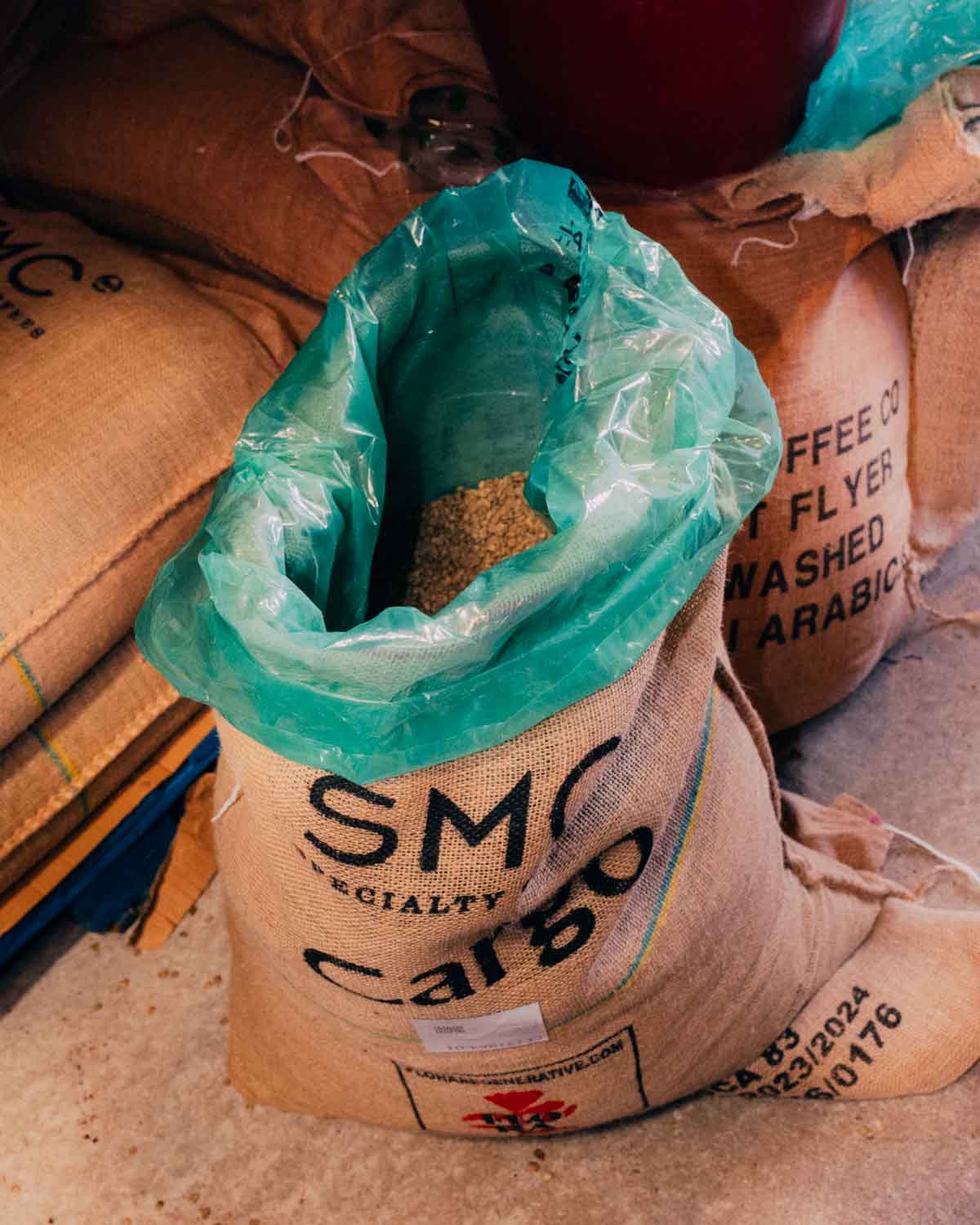
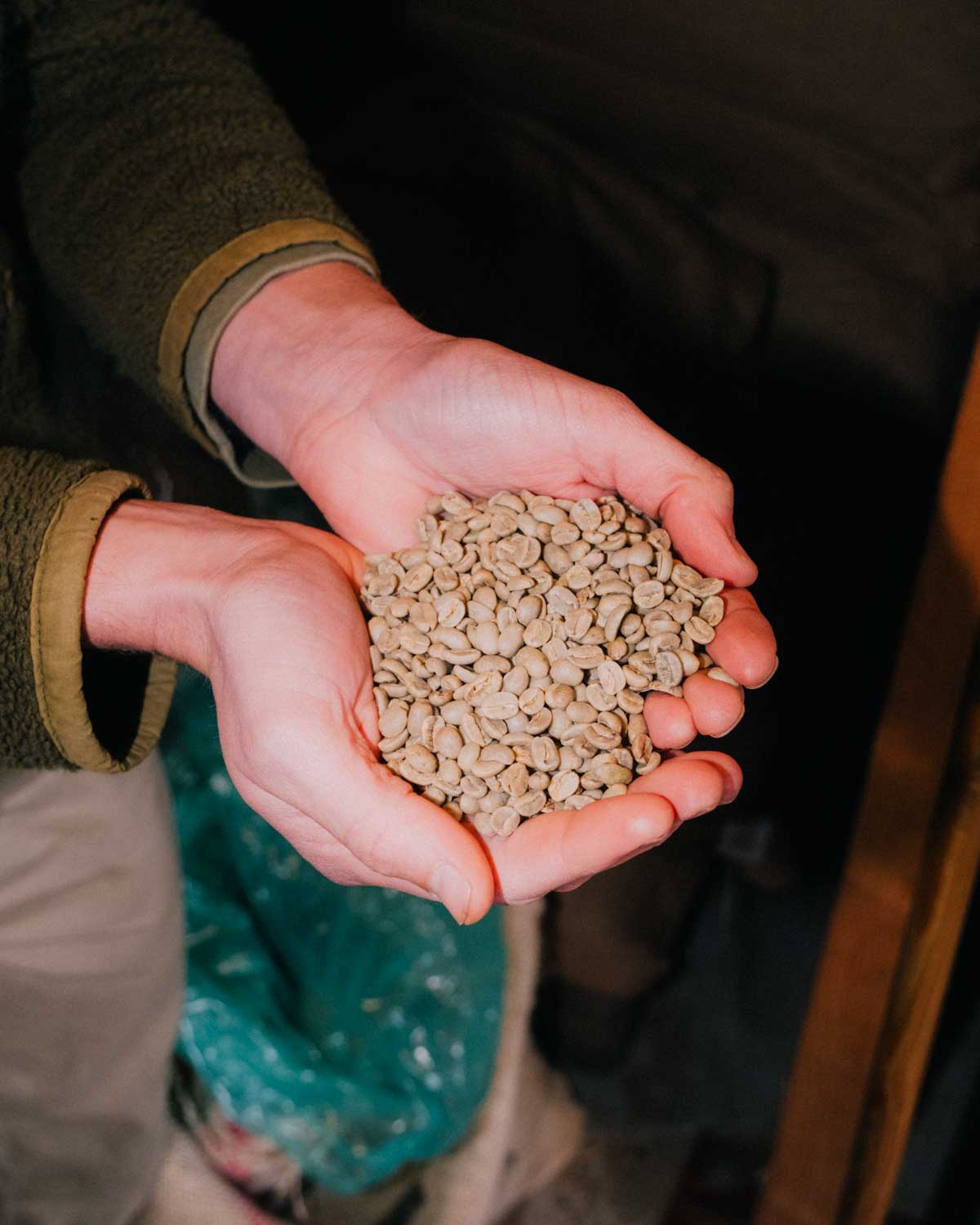
Flatspot: You recently returned from a trip to Guatemala, how did that go?
Richard: Yeah, we went to Guatemala and we also went to Nicaragua, so we went to two countries this year. This year for the first time actually, we bought a lot of coffee from Guatemala. We’ve never bought a sort of serious amount of coffee before - we bought just over seven tonnes this year. And when you buy that sort of volume, there's obviously more reason to go out and meet the producers and exporters or anyone else, you know, see the mill, see all the things that are involved with exporting that coffee or growing.
The reason we went to Guatemala this year is because we were introducing this new coffee, this new origin, as part of our house coffee range. For the last six years, it’s been Brazil-Nicaragua-Brazil-Nicaragua and we've just swapped between those two origins. As we've grown, it works better for us and I think it’ll be better value for our customers as well, to have a third origin. So this year was the first time that we’ve done that. We sort of booked without signing any contracts or anything. We knew that Guatemala was where we were going to buy our house from, so it was like a sourcing trip to places we hadn't been before. Guatemala is a really cool country, a lot different to Nicaragua and a lot different to Honduras and Costa Rica. The economy is massive there. I can't remember the figures exactly, but it's bigger than all the other Central American countries put together. Guatemala City's home to like 6 or 7 million people - super busy. And we were staying in the city and then travelling to farms on day trips, whereas when we've been to other places, you're in the middle of rural Nicaragua and there's no one, you know, it's a very different experience.


Flatspot: Were you meeting the people that were growing the coffee and tasting it?
Richard: So we went to a bunch of different farms and we went to visit Marvin, who is the producer of the coffee that we've now booked for our house coffee. It hasn't left Guatemala yet, but it will be leaving in the coming weeks and we'll have it by early summer, like June. That's when we'll release it.
When we went, it was harvest time. So we went to Marvin’s farm and they were still picking. Like a lot of these things, there's a certain amount that's about the coffee and the flavour and then there's a certain amount of just people relationships. And I've been to a lot of coffee farms where you get there and then it just doesn't feel right. Often the farm might be owned by somebody who doesn't live there and they'll have a manager in place. It might be managed from afar, and you just don't get the right vibe. And there's a lot that you can learn by just going and actually meeting the people that are farming as well as the pickers. Obviously you also get to see the conditions. Picking is kind of a low end of the economy job for people out there, so it's important to see what that farm looks like for them. A really good sign would be if you know that the same pickers are going back every year. That’s something that you look for. Some farms have accommodation, it’s just different everywhere. So you get to see all of that and you get to sort of judge with your own eyes. You're buying a product from the other side of the world; you're just trusting someone else's information if you don't go out there and see it for yourself.
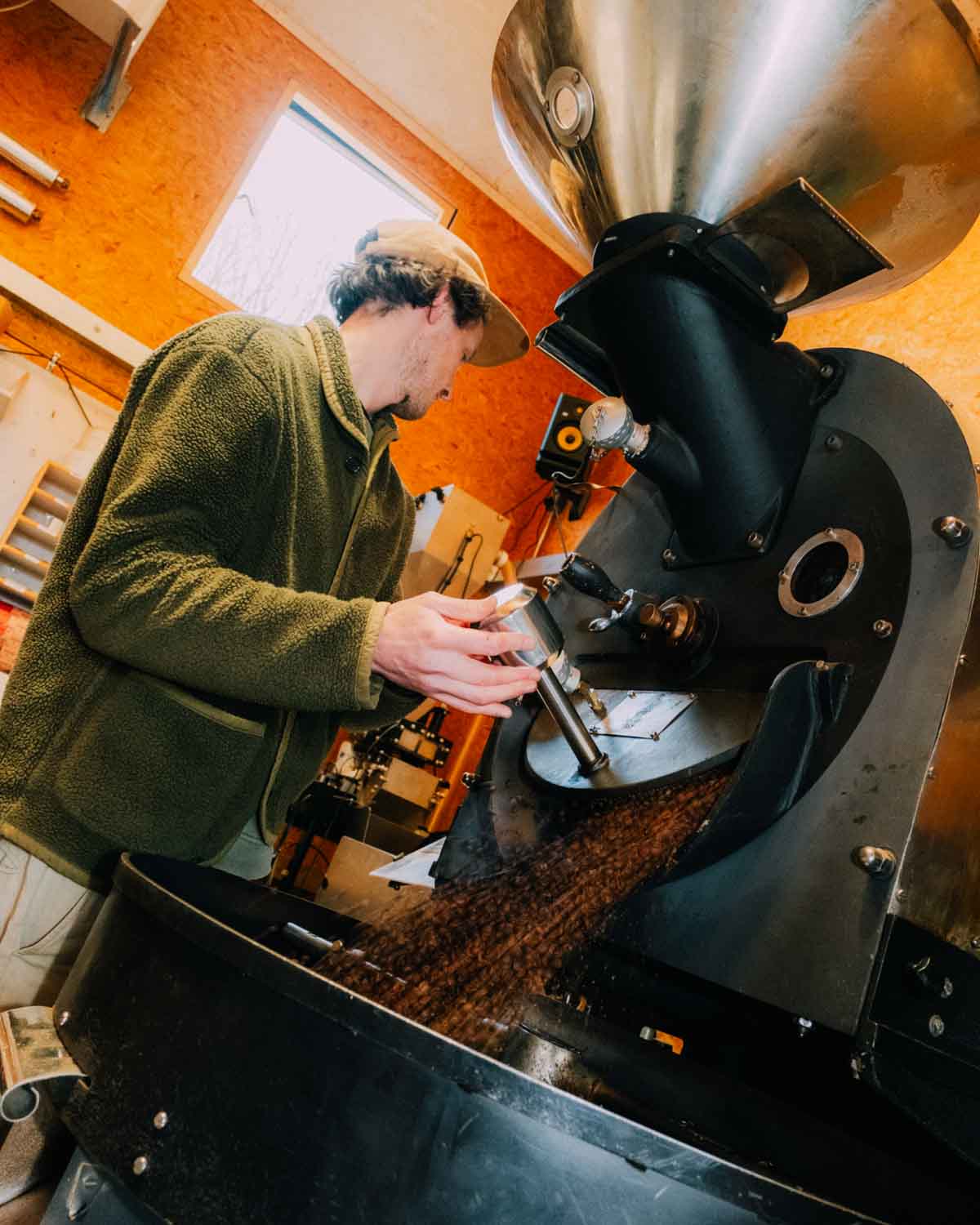

Flatspot: You emphasise the importance of building direct relationships with coffee farms and ensuring the coffee you import is socially, economically and environmentally just. What do you look for when sourcing your beans and deciding who to work with?
Richard: Yeah, so there is a grading system for coffee. Anything above 80 points is graded as specialty coffee, and that in simple terms means that a premium starts being paid for quality, for cup score, for taste profile etc. Below that is just commodity; it doesn't have a premium, it doesn't even matter what it tastes like, it just goes to the commodity market.
When it comes to sourcing we try to consider growing practices, natural biodiversity, social causes etc. It's very difficult with coffee because there's all of these different certifications. One of the biggest problems in coffee is that it’s not sustainable financially, and there's a huge problem in the coffee world of young people moving away from farming because they’re not making a living off it. So specialty coffee, this idea of coffee that's of a certain quality and has a premium attached to it; the higher the score, the better the coffee, the more the premium - that offers a route to more financial sustainability for the growers.
You go and you actually meet producers, you know, you meet them face to face and then you buy again from them year after year; in Nicaragua, we've done that. This year we went and saw Marcos and we bought his coffee for three years now, and he's genuinely stoked to see us and to bridge that gap. We bought his entire harvest last year. For him to meet us and know where it's going, it's a really cool thing.
With Guatemala specifically, we were looking there because we knew that although there's not many organic certified Guatemalan producers, it’s really biodiverse naturally and there's loads of shade grown coffee there, like 97% of coffee from Guatemala is grown under a natural shade canopy with native trees etc. Marvin, who we bought from, his coffee’s pesticide free and not like monocrop culture. These are all things that you consider, so I guess it's a balance when we're buying coffee. We’re trying to buy good coffee from good people that we feel are aligned with what we’re trying to achieve.
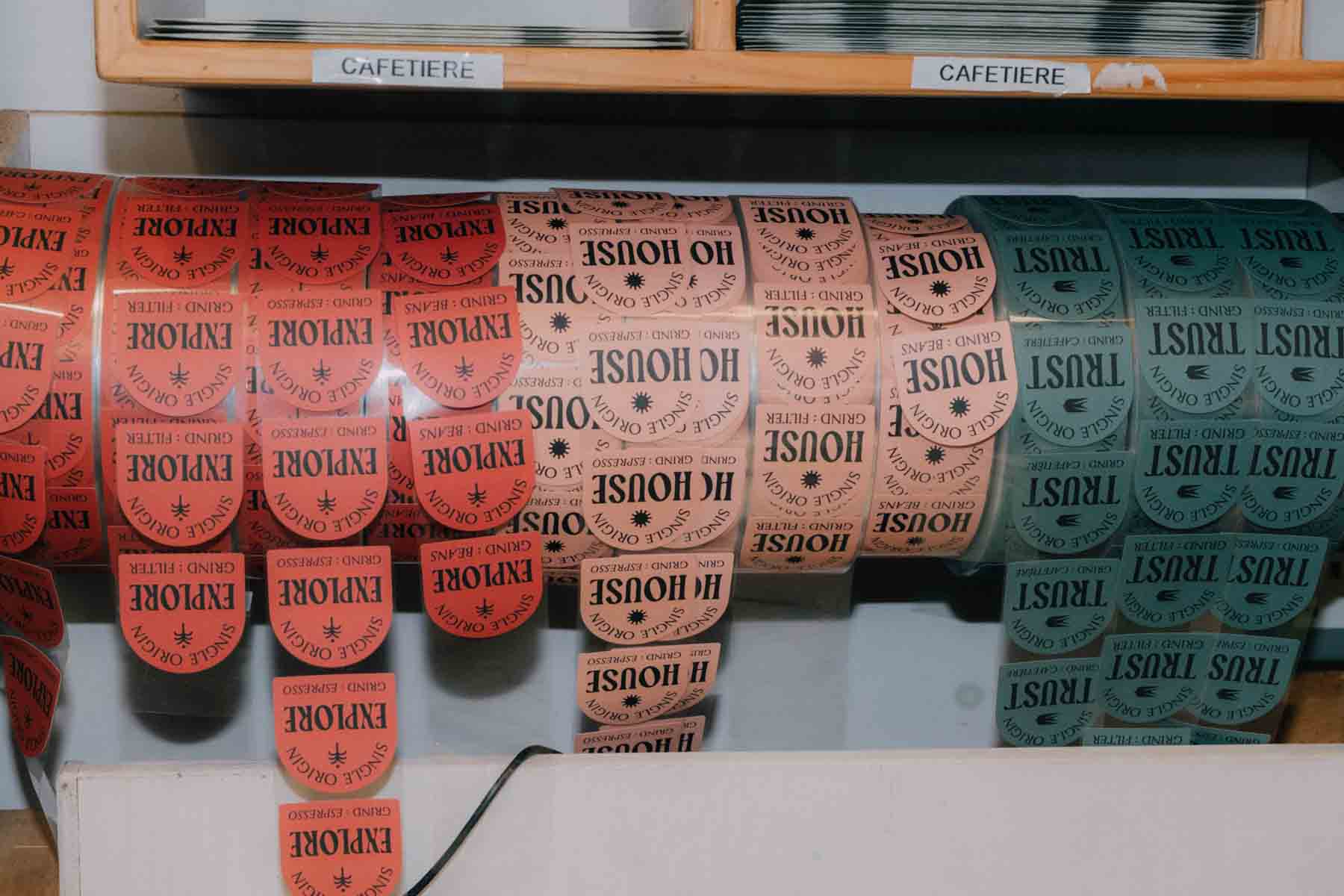
Flatspot: How do you prioritise having a direct approach to reducing your environmental impacts? Could you also tell us about the sailboat that you use for transportation?
Richard: Yeah, so from a sustainable perspective, I suppose you could say there's obviously the coffee, like how it's grown and then I guess how it ships, but there's also what we do as a business and what we have control over here. Sailing coffee over is an opportunity to just cut out one part of the journey or one part of the emissions. We were really lucky to meet Alex from New Dawn Traders six or seven years ago and she was importing some other things by sail and we had a chat about the feasibility of bringing coffee over. It took a few years to make it happen, but then we got some really, really great coffee from Colombia. It sailed from Santa Marta in Colombia straight to Falmouth - it actually came into Penryn that first year.
There's loads of reasons why it's really cool. Obviously there’s the emissions thing, but there’s also that direct connection. It's weird, it’s like when you go down to the harbour and actually hand-pull the coffee off the boat; it's another thing that bridges the gap between what happens in Central America and what happens here. It’s a magic thing to feel more connected with this product, more so than if it arrived by container.
We bought five bags that first year, then we bought around 15 bags the year after and then the year after that we bought almost 30, so we've been trying to increase the volume of coffee we buy and ship through sail every year. Our aim is to buy enough of it to bring it into our mainlines and buy a serious quantity of it, and therefore if we can buy 50% of our coffee by sail, then it actually will have a genuine impact on our emissions.
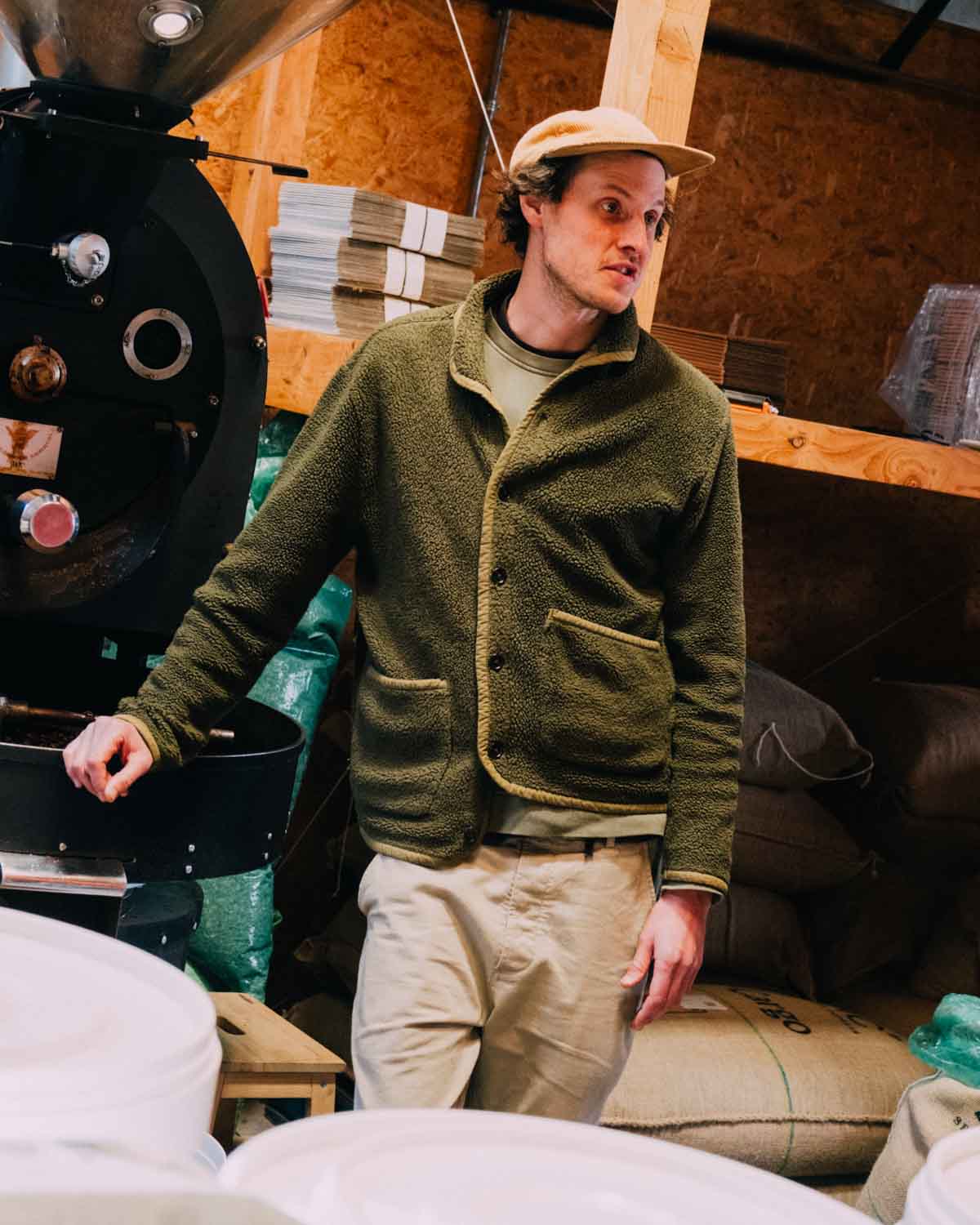
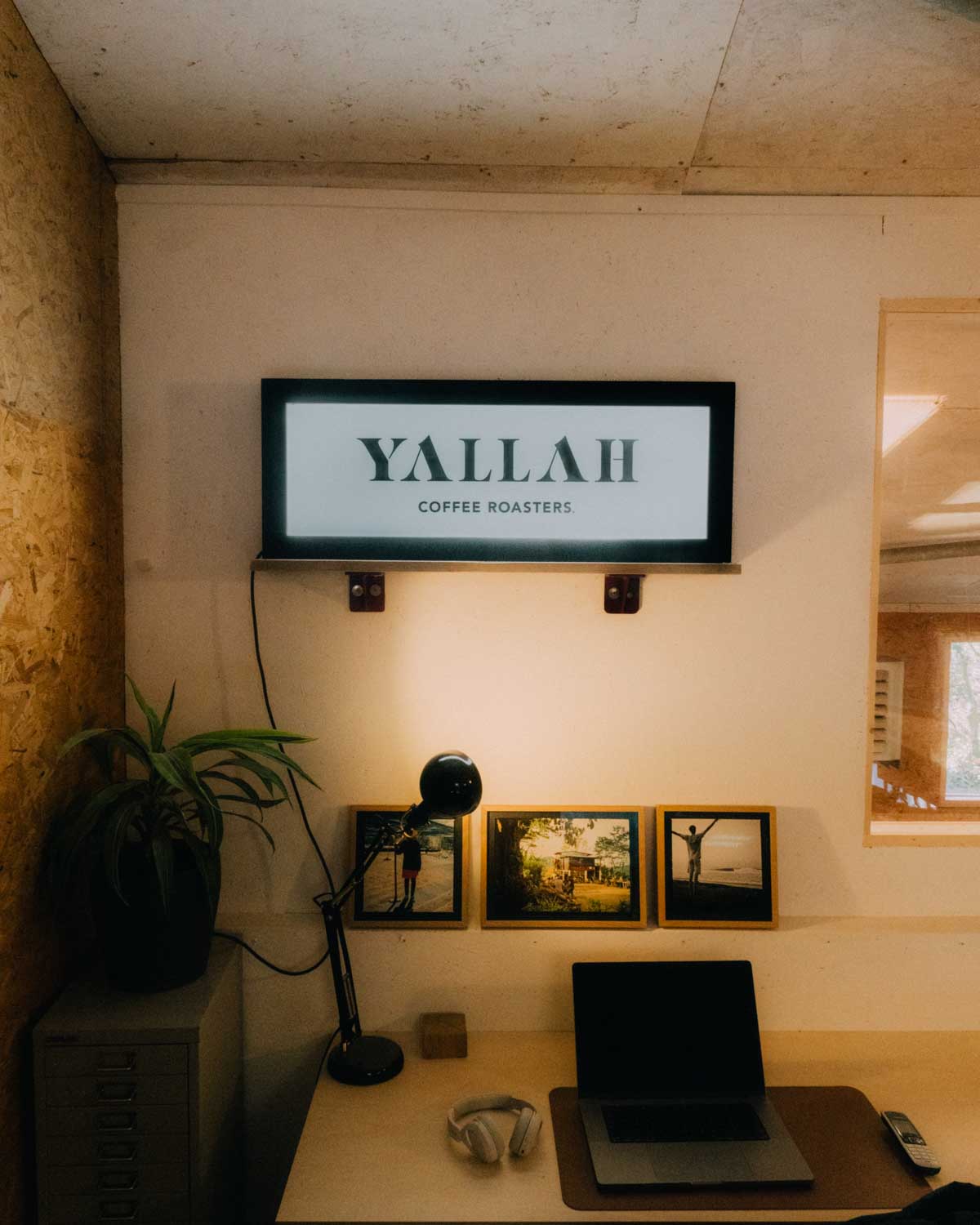
Flatspot: How is sustainability integrated into your space here at Argal?
Richard: We’re super lucky to be on this farm, it’s allowed us to do all the things we currently do. The farm has also got around 150 solar panels so for many years it’s been Net Positive on the energy it produces. In regards to our packaging, we made a decision two years ago to change all of our retail bags to be paper based, we definitely were the only roasters at the time doing that. It was a real trade off for the life span of the coffee once roasted but the reason we did it is because those bags can now be recycled curbside. Everybody now has the ability to recycle that bag. We’re just trying to put thought into the decisions we make, even if maybe it’s not obvious to the customer why we've done what we've done, there’s always a reason behind it.
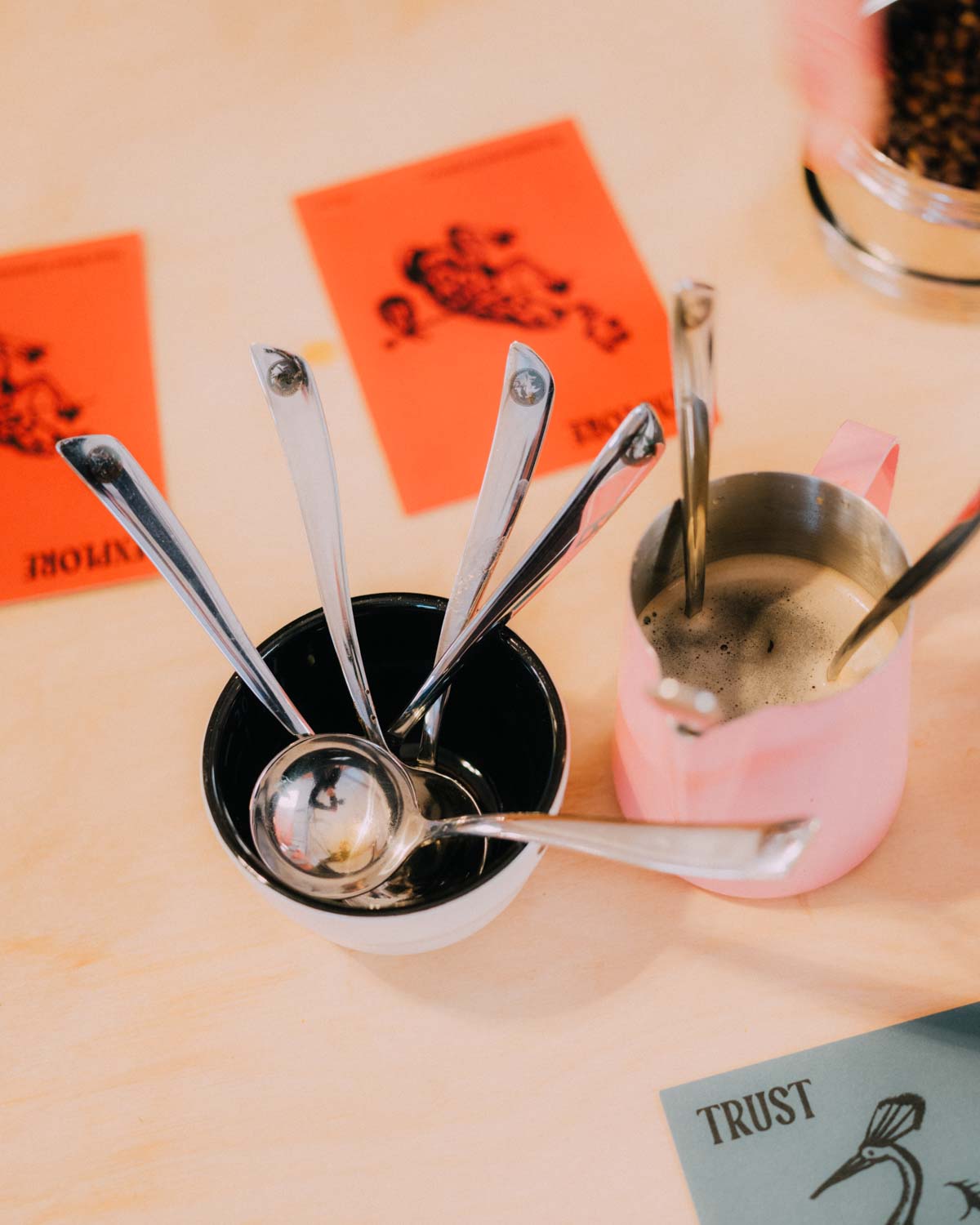

Flatspot: You’ve partnered with Cornwall Rural Community Charity (CRCC) to try and foster social connections within the local area. Could you tell us a bit more about your community involvement and the projects you’ve been involved in?
Richard: We’ve tried to have some social purpose to the business and we’ve tried to use our facilities, knowledge and skills in the coffee industry to benefit anyone young and local whatever background. We found different charities that we could work with over the years but Cornwall Rural Community Charity (CRCC) are really great. They have a programme called Work Your Way which is for young adults with learning difficulties and it helps in preparing them for work. For work experience and training courses, we use upstairs here. Josh, our barista trainer, spends time with their students. So first of all they come and have barista training with us, then this year we got one of their students working in our cafe and he loved it, we loved it. That’s something we’ll try and continue to do; that was always the aim - do the course but then use our kind network of people in the industry to try to find long term meaningful work for people.
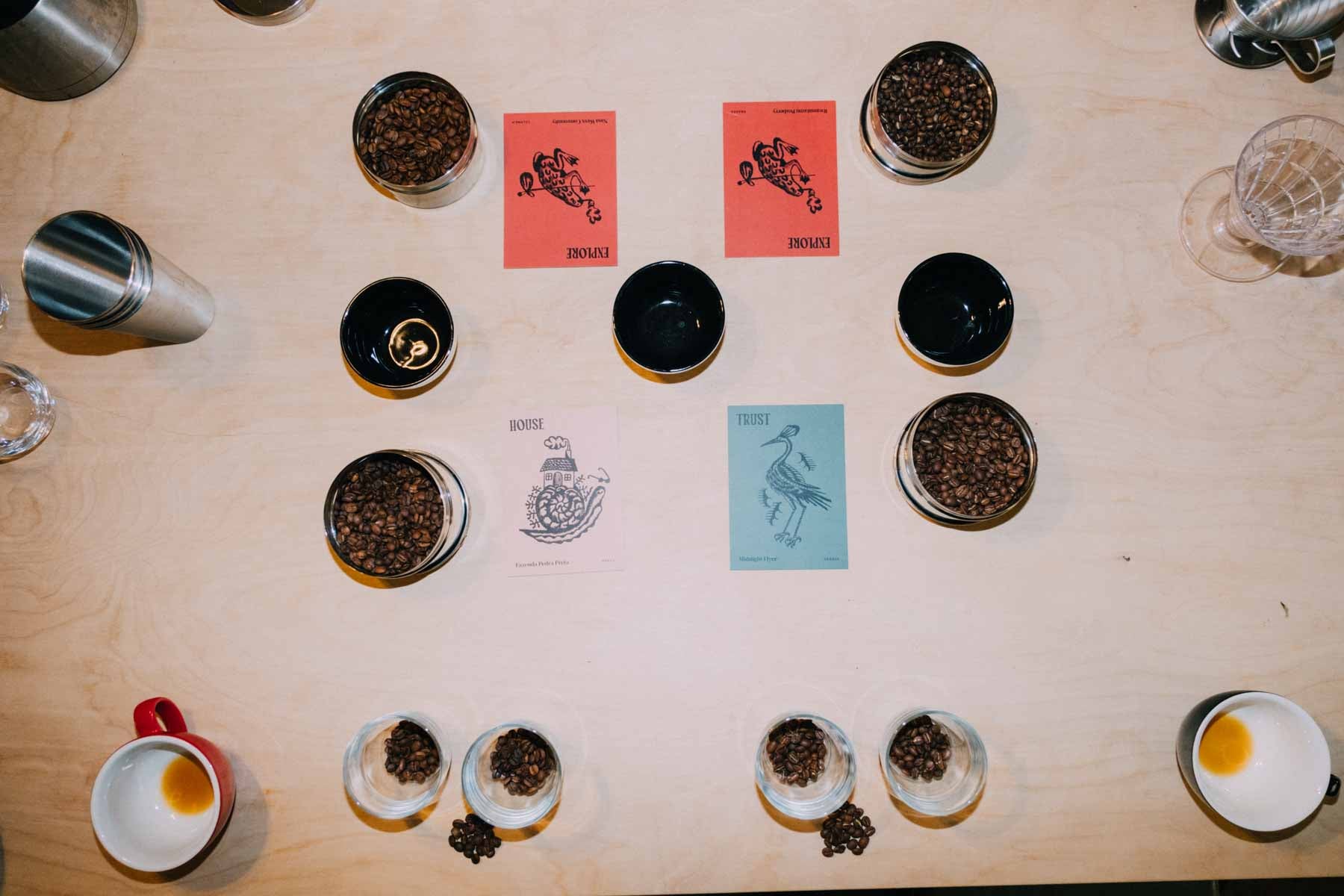
Flatspot: Awesome! How long have you been here in the Argal Home Farm space? Have you had any exciting developments that have been happening recently?
Richard: Yeah we’ve been at Argal for 10 years; it’s our 10 year anniversary in April. We’re hoping to rebuild the roastery in another part of the barn here on Argal and get more space and be a better destination for people to come and get coffee, see what we do, and also try and improve the training facility. We opened our second cafe in Penryn last year which is awesome. It’s an extension of what we do and also an opportunity for us to have a space where we can host events and try and build that kind of community. We've done some cool stuff already - we’ve had importers come down and give talks, we’ve held cuppings there, feast nights and we’ve got our Aeropress competition coming up too which’ll be great.

Flatspot: Over the years have you observed any notable trends within the coffee industry? Where do you see the future of coffee going?
Richard: Definitely just generally, there's a trend towards appreciation of what makes good coffee and what makes specialty coffee good and different.
I guess when we started there were just less people that understood what we were doing. I'm not saying we were the first good coffee roaster at all, but it was even harder for them and it was hard for us. And now you've got people springing up, but everybody knows what the deal is now. 10 years ago there were literally one or two places in Cornwall that served good coffee when I started, and now I would say there are hundreds, so the movement is massive now.
In terms of flavour of coffee, that's moved on loads and it’s a lot more scientific than it was. A good comparison is the wine industry where they've been using different yeasts and controlling fermentation and stuff for over 100 years. Whereas in coffee they've only just started doing that literally in the last 10 years, so it's an exciting time for that. In the cafe side of things it's gone crazy and there's been loads of development. People are going nuts for home brewing and spending insane amounts of money on home brewing setups. Espresso machines are kind of common nowadays in people’s homes. I think people are going to start roasting a little bit more at home - that's definitely something I can see happening, as well as building more domestic little roasters. Artificial Intelligence - you know we’re all thinking about it, it’s happening in coffee also but that’s the more geeky end of the spectrum!
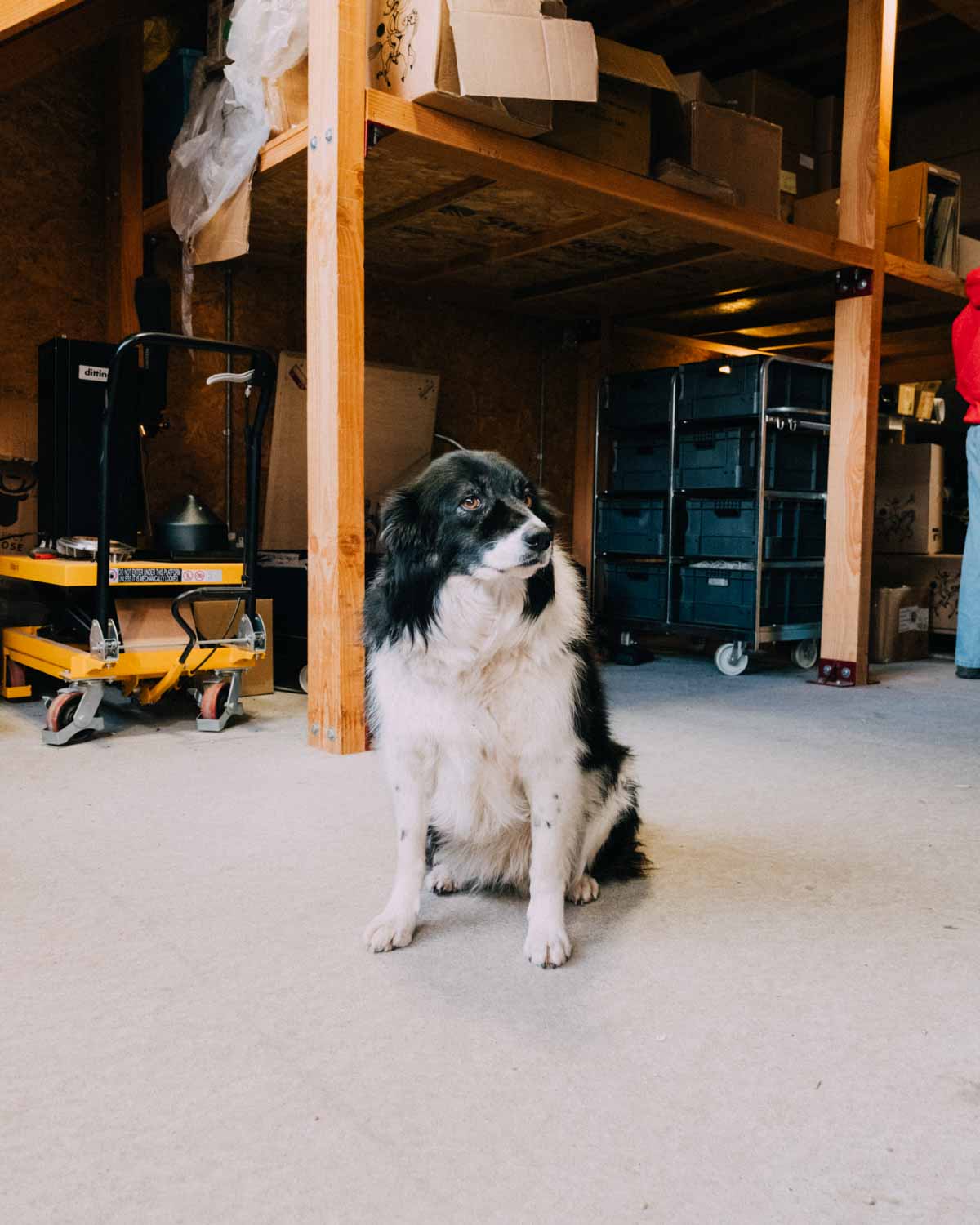
Flatspot: Looking ahead, what are your goals for the future of Yallah and are there any exciting projects on the horizon?
Richard: We’d like to continue doing all those things we talked about. We also have a range now, it was called Spotlight and it’s kind of evolved, but it’s our range of trying to find things in the industry that were a really great development. Whether that was a growing thing or agroforestry or ship by sail. Our aim is to bring the things that we find into the core of the business; like with Sail Ship, what we want to do is import our house coffee by sail. We’re hopeful that we'll be able to get all our Brazilian coffee shipped by sail. Maybe not next year, but it's the kind of stuff we're working towards.
We’ve had a massive development this year with the Brazilian coffee that we're super proud of. We were buying from small family operated, handpicked Brazilian farms but it was still traditional in terms of being quite monoculture heavy. And this year, we bought coffee from a guy called Eduardo who changed his farm to be an agroforestry farm called Pedra Preta, which is one of the only agroforestry farms in Brazil, and his aim is to be one of the biggest in the world. That's our house coffee at the moment and we’re super proud of that.
Follow Yallah Coffee on Instagram here.
